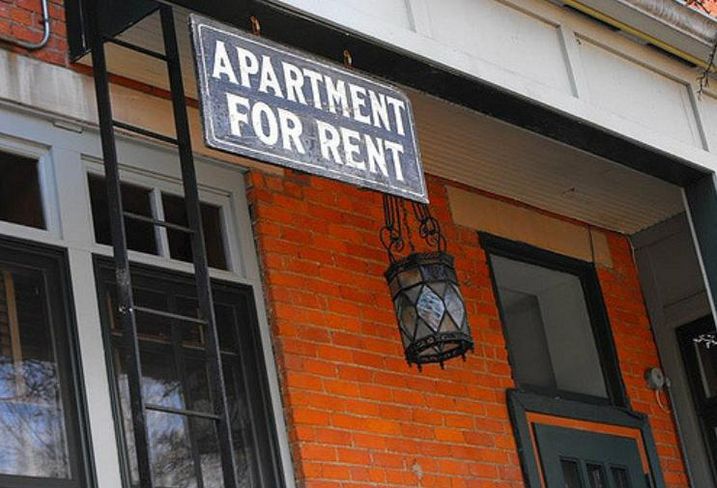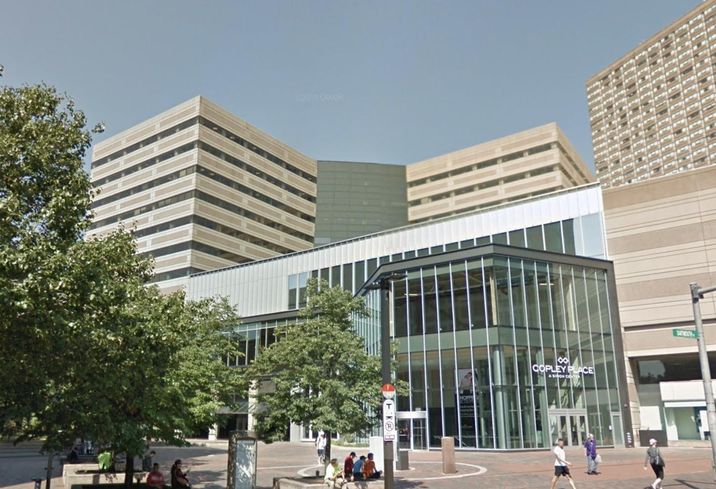
Category Archives: Uncategorized
0 CRES Stats Report | Week Ending January 15
CRES Stats Report | Week Ending January 15
- 48 spaces hit the market as available in the subject area in the last 7 days, equating to ~950,000 SF which is mostly made up of 10 World Trade Center Avenue (new product) and 125 Necco (new product);
- 17 spaces (over 1,000 SF) came off the market equating to ~95,000 SF;
- The current availability rate in Boston kicking off ’21 is just a smidge under 16,000,000 square feet.
0 Foundation Kitchen Leases 5,723 SF at The Graphic Lofts in Charlestown
Charlestown, Mass. – Foundation Kitchen, a shared culinary workspace, co-founded by husband and wife team, Ciaran Nagle and Tara Novak, has signed a 5,723 square-foot lease to open a new culinary production and dining destination at The Graphic Lofts in Charlestown MA.
This new location, located directly across the street from the MBTA’s Orange Line Sullivan Square Station, will feature a café, wine bar, and food stalls which will be open to the public seven days a week. The space will also feature an ongoing roster of cooking classes, special events, and culinary pop-ups served from a shared kitchen. Foundation Kitchen is scheduled to open in the first quarter of 2021.
The lease for Foundation Kitchen was negotiated by Stephen Pleines from Eastern Land Company on behalf of the tenants, and Joe Wagner from Boston Reality Advisors on behalf of Berkeley Investments, which owns and developed The Graphic Lofts.
Berkeley has long recognized the value of placing innovative food and beverage concepts in rapidly growing neighborhoods. Young Park, president of Berkeley Investments, is credited with introducing Barbara Lynch to the Fort Point neighborhood in 2008 by offering the company’s FP3 residential building as home to Drink, Sportello and Menton. Likewise, Park persuaded the award-winning culinary team of Row34 to bring their seafood restaurant to Berkeley’s loft rental project at 381 Congress Street in the same neighborhood. Park says, “The addition of Foundation Kitchen to The Graphic Lofts and the community of Charlestown is a home-run for everyone involved. The concept is one that will appeal to multiple audiences who are essential to the neighborhood including residents, nearby workers and commuters. The unique concept meets a variety of needs in the market, and we know it will be incredibly popular when it opens.”
Kevin Longo, Berkeley’s Asset Manager, also adds that the Foundation Kitchen model is a well-suited amenity for the building and its residents: “It will bring the community together by offering a unique hyper-local food and beverage experience with ever changing options from a diverse group of talented small businesses. It’s the type of concept that excites our residents and community members, and perfectly supports their urban lifestyle.”
From a food and beverage standpoint, plans call for Foundation Kitchen to offer breakfast, lunch and dinner menu items, along with craft beers and wine, either to-go, or for in-restaurant dining through their cafe and wine bar. Owner Ciaran Nagle says the market and location are prime for this type of carry-out dining option, especially for those that reside above Foundation Kitchen in The Graphic Lofts, and those that live nearby in Hood Park and Charlestown. He says, “The impacts of COVID-19 have put more focus on carry-out and at-home dining, and our business model was set-up perfectly for that well before the pandemic adversely impacted the restaurant community. Given this shift and increased demand for more healthy, local grab-and-go dining options, takeout and delivery have skyrocketed in popularity, as customers seek creative alternatives to cooking at home night after night.” Nagle says Foundation Kitchen members will offer creative culinary packages like family-style meals, curated make-at-home meal kits, farmers’ market delivery services, and wine-and-food pairings.
Those who choose to dine in Foundation Kitchen’s Food Hall will experience indoor and outdoor spaces that take their design cues from the local neighborhood, “which is rich with creativity and innovation,” says Kevin Cromwell of Cromwell Consulting, a food service consulting firm that helped design and layout the space. “Our goal was to create an environment that allows quality culinary entrepreneurs a place to flourish.”
Likewise, Rashmi Ramaswamy, lead architect of SHED Studio, and designer Jack Cochran, were inspired by The Graphic’s industrial elements and the important work that Ciaran and Tara are doing to support diverse, local entrepreneurs. They both thought about the establishment’s namesake – a “foundational” kitchen – and created a space that celebrates the building’s architecture, while also connecting guests to the places and landscapes where food comes from. Ramaswamy and Cochran agree: “With abundant plantings, a warm, atmospheric mural, and exposed brick and massive wood beams, the marketplace will unite the public and global cuisines together to create a space that’s both transportive yet also very much part of the history and evolution of Charlestown.” All of the parties involved are committed to creating a space that follows COVID-19 CDC and State of Massachusetts health guidelines.
In addition, as a family-owned-and-operated business, Owner Tara Novak says Foundation Kitchen will fill a void by providing a space that’s inspiring to other small to mid-size food companies. “We presently have one boutique shared commercial kitchen located in Union Square, Somerville and we’re excited about this new location opening in Charlestown,” she says. “This shared kitchen concept is licensed for shared-use food production, and multiple other businesses may operate from our new kitchen at The Graphic. All member companies working out of our space have their own licenses, insurance, and certification, and either work from their own designated studio space or from their own pre-scheduled space within the shared kitchen.”
Foundation Kitchen already has close to twenty members who cite multiple reasons for using shared kitchen space including the lack of commercial kitchen space in the Boston metro area, the cost of incurring long-term leases, and the large overhead costs associated with a commercial kitchen facility. Novak adds, “We take care of all of those elements by providing a facility where companies can come in and focus on their core business – making and selling food that customers enjoy and appreciate. We also work very hard to curate a community of like-minded businesses within our facilities, creating a place where owners and employees can network, while supporting, mentoring, and motivating each other.”
Adam Dziki of Wild Fox Pierogi, a Foundation Kitchen member since 2017, looks forward to being a part of the new space at The Graphic when it opens in early 2021. Dziki says, “Wild Fox serves delicious cuisines inspired by our Polish and Portuguese heritages. We’re also a family owned business and we look forward to offering lunch and dinner options that are packed with flavor, including our signature ‘Bigger than Babcia’s’ scratch-made pierogi, as well as soups, sandwiches, salads, and more.”
0 Will Silicon Valley put real estate brokers out of business?

Christine Quinn and Davina Portratz in season 2 of Netflix’s real-estate reality television series Selling Sunset [Photo: Netflix]
A real estate CEO explains why traditional brokerages must “reinvent or die.”
By Jason S. Weissman | Fast Company | September 2, 2020
Silicon Valley is catching up to the real estate industry. Over the past decade, more than $30 billion has poured into PropTech, a new generation of startups at the intersection of property and technology.
As the owner of the largest independent real estate brokerage and advisory firm in Massachusetts, I have been studying the brokerage industry for 25 years. I’ve seen aspiring disruptors come and go. This time is different.
It’s an open secret that real estate, the world’s largest asset class, has also been one of the slowest industries to adopt new technologies. In fact, a recent KPMG survey found that only 58% of real estate companies have a digital strategy in place. The current situation leaves the field wide open to innovation—and disruption.
Startups like Hemlane and Eden are streamlining property management services. Landis acquires homes as investment properties, then allows tenants to “rent to buy” when the company’s underwriting algorithms deem renters are qualified to purchase. Bowery automates the traditional manual process of appraising commercial properties with a data-driven platform and mobile app. As PropTech continues to infiltrate the real estate industry, the conventional brokerage community will need to embrace innovation if it wants to stay in business and remain competitive.
In order for brokers and agents to take the technological leap, they need to recognize that every real estate transaction will ultimately begin and end online. Today, unicorns such as Zillow and Redfin are redefining and leading the consumer experience of search by creating new platforms for buying, selling, and renting homes. These tech companies are a wake-up call for real estate agents to reinvent or die.
For example, StreetEasy and Matterport have reduced the friction costs of finding an apartment rental. A sophisticated renter can avoid an upfront fee and still find her dream apartment with ease. This experience is one example of many where we see real estate consumers embrace technology and the benefits that it offers.
The question, of course, is how far will tech get us? And is there still a role for people in this digital revolution?
The answer isn’t all doom and gloom for America’s two million real estate agents. While PropTech will ultimately bring all listings online, real estate agents are still critical for the most important part of the purchasing process: advisory service. If all politics is local, that is doubly true for real estate. Even the most tech savvy buyer or seller can benefit from the counsel of someone with market knowledge about individual neighborhoods.
The value of expertise, after all, is timeless. Davy Greenberg said it best in a viral tweet: “If I do a job in 30 minutes it’s because I spent 10 years learning how to do that in 30 minutes. You owe me for the years, not the minutes.” For now, there is no suitable replacement for the time-tested insights of brokers with access to hyperlocal data.
Be that as it may, technological progress is relentless. Real estate brokerages and agents should pay attention to this wakeup call or become obsolete.
The pivot from conventional practice to digital efficiency has created new business opportunities for real estate agents with sharp analytical skills who understand how to translate data into palatable information. While technology narrows the gap, PropTech is still in its infancy, with a lot yet to learn. As the tech editor Chris Nuttall wrote in the Financial Times, “For all our fears about artificial intelligence becoming far too clever—as it uses machine learning on huge data sets to give it superhuman powers—people are thankfully still pretty good at making AI look like an idiot.”
Despite the need for human dexterity, it is undeniable that the future of the real estate brokerage business will revolve around the instantaneous application of data. From leads to listings, we live in a digital world. Consequently, it’s imperative for real estate agents to combine their accrued market acumen with new technology in order to be a trusted resource and effective advisor.
We are at a crucial juncture within the history of the brokerage industry that will test the survival of every real estate agent. The rise of automation and artificial intelligence will continue to propel the growing dominance of tech-powered players. As a result, PropTech will likely drive down transaction costs and eliminate jobs. The real estate agents and brokerages who survive and thrive in the coming crunch will be those who embrace technology, not fight it.
Jason S. Weissman is the CEO of Boston Realty Advisors, the largest independent real estate services firm in New England.
0 LogMeIn CEO rethinks corporate headquarters for a post-COVID era

By | Boston Globe
As few as one out of five employees will spend all workdays in the office
Six months ago, LogMeIn chief executive Bill Wagner never would have imagined he would hire his next chief financial officer without meeting him in person first. Wagner would have said that’s crazy.
Not anymore. Sure, we live in crazy times now. But some changes won’t be temporary. The ones playing out at LogMeIn, one of Boston’s biggest tech companies and a key player in the remote-work software business, illustrate just how different the office scene in Boston could be once this pandemic finally ends.
All 700-plus of Wagner’s Boston employees work remotely right now — like most of Boston’s white-collar workforce — and they will continue to do so until October. But some won’t ever return to LogMeIn’s headquarters. Only a small portion will work all five weekdays at the main offices along both sides of Summer Street in Fort Point.
How few? Wagner said he expects 20 percent to return five days a week after the pandemic is over. One in five. Let that sink in for a moment. Sure, many colleagues will come in less frequently, but others will be essentially remote workers all of the time. The breakdown won’t be known for months, probably not until a vaccine is widely available.
Wagner predicts LogMeIn’s corporate office will become more of a place for team meetings, training sessions, and similar get-togethers and less of a place where people dutifully show up every morning at 9 to grind out another workday.
Wagner said it’s far too early to know what this means for the 230,000 square feet LogMeIn leases in Fort Point — how much he’ll need, how it will be reconfigured. Even harder for Wagner to predict: What will happen to all the lunch places, bars, and other businesses that serve all the workers who used to arrive like clockwork?
This isn’t primarily about saving money, Wagner said, even though cost savings could be found. (A spokeswoman says some savings would be redeployed to help equip home offices.)
Instead, Wagner said he’s keen on letting employees work where they want to work. LogMeIn surveyed its 3,700 employees worldwide. About 3,200 responded. Of those, only 5 percent said they want to be in the office five days a week. People like the flexibility they have now, he said. They are sleeping and exercising more. And many say they are more productive now that they no longer spend hours commuting.
But employees still miss the social aspects of office life, Wagner said. That’s one reason why Wagner envisions adopting a hybrid model, of sorts.
The shift also significantly widens the pool of talent available. Existing employees might be able to move to another state if they want. In fact, Wagner said his chief of staff, Chris Perrotti, plans to do exactly that: He is moving to his Vermont home. And new hires don’t need to move to Boston. They just need to be in the same time zone.
Case in point: the new chief financial officer. LogMeIn is expected to be acquired by summer’s end by two private equity firms, Francisco Partners and Evergreen Coast Capital, in a deal valued at $4.3 billion when it was announced in December. Wagner wanted someone with experience taking a company private to replace Ed Herdiech, whose retirement was announced last fall. Rich Veldran, the new CFO, fit the bill: He guided the financial information provider Dun & Bradstreet when that company went private.
LogMeIn’s interviews with Veldran were conducted remotely. Like many other CEOs, Wagner considers the chief financial officer to be the number two job, the top lieutenant. Veldran still lives in New Jersey. (He joined LogMeIn on June 15.) While Veldran may get an apartment in Boston, Wagner said he doesn’t expect his right-hand man to have to pick up and move here.
The increasing acceptance of remote work was already under way, Wagner said. COVID-19 just accelerated it. Companies are under pressure to reduce their carbon footprints, to shave real estate and travel expenses, and to hire more diverse workforces. Going remote can help accomplish all three goals.
Sure, Wagner is a bit biased here. He does, in fact, sell software geared specifically for this kind of transition: LastPass, join.me, the entire GoTo suite. Sales have surged through the pandemic, although LogMeIn did make some technology available for free to nonprofits and government agencies.
Executives at other white-collar companies are pondering similar questions. And some are acting.
The real estate brokerage Colliers reported that companies put nearly 900,000 square feet of office space in Boston on the sublease market for the first time in the second quarter. That’s the highest number since 2004 — when corporate giants Fleet and John Hancock were gobbled up within a 12-month time frame — and the third-highest of any quarter since 1990.
(Side note from Aaron Jodka of Colliers: With the exception of a 100,000-square-foot chunk of space opening up at Tripadvisor’s headquarters in Needham, Boston’s suburban office market seems stable right now.)
LogMeIn was a trendsetter back when it relocated from Woburn to Boston in 2013, as suburban companies decamped for the big city in the hunt for talent. It became a flagship member of the city’s Innovation District, the branding applied at the time to Fort Point and nearby environs in the Seaport. The following year, the company even secured $2.5 million in city tax breaks and nearly $1.1 million in state tax credits to help pay for an expansion there.
Now, LogMeIn might be leading a new kind of trend as it rethinks its corporate headquarters, and this one might have even bigger consequences for the Boston economy.
0 The Future of Office Amidst Covid-19

Wil Catlin was a panelist on a recent iGlobal Forum webinar discussing the future of office amidst COVID19 from both asset management and acquisition standpoints.
Key topics include:
- Flex-space and Space-As-A-Service feel highly relevant, yet how can they survive new health requirements?
- Will tenants downsize and relocate to minimize costs? Or will they create grand offices that are branding exercises to draw people back together?
- What are asset management teams doing to protect portfolios in this C-19 environment?
- What solutions are available for elevators?
- How much will operating costs increase?
- How are sector benchmarks or metrics shifting to meet the new Covid-19 reality?
- In future, will an employer’s location matter less, and if so, what does that mean for the office sector?
If you missed it – check out the webinar recording here.
0 The Recession Will Hurt But Bostons Multifamily Market Is Poised For A Quick Recovery
By Drees Stribling | Bisnow | May 8, 2020
The initial shock of the coronavirus pandemic might be past, but that doesn’t mean landlords, tenants, developers or prospective renters and buyers aren’t still trying to cope.

A cornerstone of operating multifamily buildings as safely as possible has been “communicate, communicate, communicate,” Samuels & Associates principal and Chief Operating Officer Leslie Cohen said on Bisnow’s recent webinar, Managing & Protecting Properties: Multifamily During Coronavirus.
“We’ve pivoted to figure out how to continue to build community after the initial shock,” Cohen said. “Now we’re settled into a new normal. The first few weeks were a little fast and furious.”
Whereas the last recession was driven by a banking and wider financial failure, The Collaborative Cos. Managing Director Sue Hawkes said, the coronavirus has hit every aspect of the economy.
“However, I think that’s the good news,” she said. “Without being overly optimistic about Boston, the region has great economic engines. It doesn’t rely on one source of income.”
One of the reasons Boston multifamily was able to recover relatively quickly from the last recession was lack of inventory, Hawkes said, and that is still the case — both for rental and for-sale product. In recent years, the market has been able to absorb 20,000 or 30,000 units a year, with only a few months’ inventory.
The current downturn will impact different Boston multifamily developers differently. Those more highly leveraged, or perhaps with a project that is only 10% or 20% sold, will see softening.
“There’s no question that we’re looking at a potential pro forma escalation of anywhere from six to eight months of absorption, maybe more,” Hawkes said. “The strategy that developers need to look to is their own ability to stay. If they can hang on for the long haul, there’s no reason they can’t get out of this in a reasonably comfortable time frame.”

Boston Realty Advisors Managing Principal Wil Catlin, who co-moderated the event with Bisnow’s Chris Bushnell, asked if millennials, currently dealing with their second economic crisis before they turn 40, are looking to buy residential units in the current climate.
“Millennials by nature are pretty resilient and are comfortable taking risks,” Hawkes said. “As long as they still have a job, they’re pretty comfortable with [buying]. Interest rates have never been more attractive.”
Leasing is also still going on at her for-rent projects, Hawkes said, at least five units a week in some places.
“I’m amazed at the activity in the suburbs,” she added. “We have a project in the Plymouth area that has sold 18 units in the last six weeks. That’s predominantly an empty-nester community, so I think that begs another question: Are we going to see any pushback from people not wanting to live in a dense environment?”
Samuels & Associates communicates through its Yardi platform, RENTCafé, Cohen said, striving to be consistent in reminding residents of what’s going on — such as how package retrieval might be different or status updates on amenity spaces. Samuels & Associates also uses email, phone and text communications, a method of communication it typically hadn’t done before, she said. The crisis is causing the company to rethink other, older ways of doing business, Cohen said.
“Maybe there’s a way to do leasing differently going forward,” she said. “We have an aggregation of over 1,500 units, so maybe there’s a way to lease differently, rather than having individual agents sitting in individual buildings.”
Cohen said her company isn’t seeing the rent growth it projected before the pandemic, but also believes the slowdown is temporary.
“We’re focused more on retention, incentivizing people to stay,” she said, adding that the company has been able to retain a number of residents who gave their notice in the early days of the pandemic.
“We simply went back to them. [It’s] typically not something we do, but we went back to check in,” Cohen said. “We’re trying to solidify renewals earlier than normal. We’ve often done early bird renewal specials, so that if you renew in 48 hours, it’s at a discounted rate.”
0 ALL THE DOMINOS FALL’ Business debts are threatening a cascade of loss
It was 5 p.m. on the Friday before April 1 when John Pepper finally picked up the phone to speak with one of his restaurant chain’s landlords. Pepper, the co-founder and former CEO of Boston-based Boloco, hadn’t wanted to answer the call.
Luckily, it was good news — the landlord would be forgiving Boloco’s rent from March 15 through May 31.
“She is no longer a ‘landlord,’” Pepper wrote on Twitter. “She and her incredible organization are a partner.”
April 1 arrived last week, and with it, a huge amount of uncertainty regarding how commercial tenants and landlords are handling rent payments amid the coronavirus pandemic that has shuttered businesses across the globe.
Many landlords are loath to discuss whether they’re asking tenants to pay in full. Several of Boston’s biggest property owners and managers wouldn’t respond to questions about the situation. On the other side, tenants have reported mixed reactions from landlords. Some businesses are being offered 50% off rent for the next three months, others are receiving full deferral of rent for the next three months, and still others are seeing rent forgiven for now, but having it tacked onto the end of a lease term.
Amid such confusion, there’s the $2.2 trillion federal relief package — and with it, the $349 billion Paycheck Protection Program — but there are still big questions about when and how small businesses can tap into those funds.
And in the meantime, some landlords either cannot — or will not — offers deals on rent payments.
“I’ve heard those stories: ‘I have no choice, I have to pay my lender. You have to pay me or I’ll breach my covenant, or I won’t be able to pay my own mortgage,’” Pepper said in an interview with the Business Journal. “The lenders really have to work with the landlords right now, or the lender will be responsible for a lot of businesses closing. When a landlord says, ‘You have to pay me,’ and there’s no money from which to be paid, nothing works. All the dominoes fall.”
‘Behind the tidal wave’
Retail, hospitality and restaurant tenants were the first to feel the brunt of the shutdowns, but the office market is also taking a hit, said Michael Scott, co-managing partner of law firm Nutter in Boston.
Businesses with more cash on hand than those in retail or food and beverage typically are in a better position to be able to pay rent. For example, Boston-based STAG Industrial, a real estate investment trust that owns and operates a 91.4 million-square-foot portfolio of mostly industrial assets, says “less than 5% of tenants have requested rent relief” amid the coronavirus pandemic. The real estate investment trust says it’s engaging in “ongoing discussions to understand financial situation and impact” with its 414 tenants, who are primarily in single-user industrial properties, according to its most recent annual report.
Boston-based real estate firm Hudson Group is taking steps to ease the economic burden its tenants are feeling amid the pandemic — including forgiving April rent in some cases, says company principal Noam Ron.
Hudson Group is a midsize firm with a portfolio comprising several smaller retail tenants and several residential buildings — including Radian at 120 Kingston St. in Boston, which has restaurant Stillwater on its ground floor. Ron says the firm’s size means that, while it can be flexible on rent, it’s not a giant corporation that can absorb several months of losses.
“If all we’re doing is chipping away at these things, we’re behind the tidal wave that’s coming this summer. And that’s pretty scary,” Ron said. “We’re talking about flattening the curve now, as we should be. But the curve of the stimulus and the curve of our economic response is going to be flat unless we deal with it now.”
Forbearance
Landlords are only a part of the equation, Ron says. Often, it’s not up to a landlord to decide whether a rent payment is due; they need to work out arrangements with their lenders to pay their mortgages.
“The word of the day when it comes to debt is ‘forbearance,’” said Josh Bowman, an attorney who chairs the hospitality group at law firm Sherin and Lodgen LLP in Boston. “A lot of landlords have already gone to their lenders, and a lot of their lenders have already proactively sought out their borrowers, and they’ve already started to modify loan terms so landlords don’t have to pay their debt in April. It’s all a big, connected chain.”
There are typically two types of lenders, Bowman says: a balance sheet lender, which holds a loan on its own balance sheet and doesn’t sell to anyone else, and a commercial mortgage-backed securities lender, which sells a loan to a trust owned by bond holders and Wall Street investors.
Many local balance-sheet lenders are already taking steps to work out forbearance agreements to allow borrowers to temporarily defer on its debt service payment.
But it’s a different story with commercial mortgage-backed securities. A Business Journals analysis of the national commercial real estate market has identified 4,600 properties securing $30 billion in CMBS debt coming due in the next six months. Many of the borrowers in those loans will want to seek workouts — or modifications to the terms — in coming weeks, but it’s a complex process.
“If you have a CMBS loan, there are no workouts going on yet,” Bowman said. “It takes much longer for a CMBS lender to get into a workout, because they have to first refer the loan to a special servicer. The master servicer — which is the person who normally just collects the money on the loan — has no power to do any kind of workout.”
The International Council of Shopping Centers, one of the largest real-estate industry groups in the world, on March 31 formally requested the federal government to require lenders — including holders of commercial mortgage backed securities — to temporarily forbear on debt obligations for retailers.
“The long-term strength of the shopping center industry is critical to the economic, civic and social viability of communities across the nation,” wrote Tom McGee, the ICSC president and CEO, in the March 31 letter. “Our entire industry is at risk if action to support it is not taken.”
A downside of placemaking
For years, Boston developers have touted the benefits of placemaking — creating places where people want to be, and experiences that people want to have, as a way to draw in consumers to spend money in person and not online. As a result, nearly every new development in the city has had some form of restaurant or retail space on its ground floor.
With those spaces nearly all closed now, it affects the rest of the office or residential space, said Wil Catlin, managing partner of Boston Realty Advisors.
“That retail gets dark, the window gets broken, it’s dark, you don’t feel good going into the building. You’re going to remember that landlord, and did the landlord do the right thing?” he said.
Catlin and Jason Weissman, the firm’s senior partner, say that many landlords are working with tenants on a case-by-case basis, trying to be mindful of long-term relationships.
Tenants worry that, without immediate significant help, Bostonians could return to a city where nearly every ground floor tenant is boarded up, or like New York’s Upper East Side, where many vacancies end up getting filled with a Duane Reade pharmacy or a bank, said Josh Childs, who opened Trina’s Starlite Lounge in Somerville and Audubon in Boston.
“This is what is the vibrancy of the city is in the first place. Do we want to be become a corporate strip area, or do we want to have interesting places that reflect the diversity of the community?” Childs said. “We will get through this, and at the end of it, the people who have worked together and thoughtfully trying to make it a better situation for everyone will be not only remembered for doing so, but also remunerated economically. That, I think, will be the success of this down the road.”
0 Thank you Jim Grady from Synergy Investments for Joining the BRA Morning Zoom
Thank you Jim Grady from Synergy Investmentsfor joining the BRA Morning Zoom. Key takeaways include:
- Tenants are the lifeblood of any portfolio. As tenants implement business continuity plans and take care of their respective families, our message is – Don’t focus on rent. We will work with each tenant to develop the ideal solution based on each scenario.
- TIP – Now is the time to work on relationships, build value and establish loyalty.

0 Boston Tech Firms Are Laying Off Hundreds. Will The Office Market Feel It?
In Cameron Sperance’s latest, he says that, “TAMI tenants accounted for 40% of all office transactions in Boston’s central business district last year.” Fresh off of over 140 leases in 2019, Managing Partner of Boston Realty Advisors, Wil Catlin said, “Office space in Boston has become a commodity, and commercial landlords are stepping up to ensure their asset is ready for today’s workforce. It’s a competitive environment and the landlords with quality, ready-to-go space are getting deals done.”
By Cameron Sperance | Bisnow | March 5, 2020
A string of recent layoffs in Boston was bad news for the city’s typically robust tech sector. But analysts say the furloughs have more to do with normal business operations than signs of a tech pullback from Beantown.

Cambridge-based Akamai Technologies cut around 75 jobs in early February. Wayfair laid off 550 employees worldwide, including 350 employees at its Boston headquarters, Feb. 13. The following week, Boston-based software company LogMeIn cut 300 jobs, nearly 70 of which were in Boston. Agricultural tech startup Indigo Ag then announced at the end of last month it was laying off 150 employees.
Wayfair’s job cuts were tied to the company’s previous overexpansion. LogMeIn said its layoffs were due to “evolving priorities,” per the Boston Globe. Indigo Ag is “focusing resources on the fastest growing aspects of the business,” the company said in a statement to Bisnow.
Akamai, Wayfair, LogMeIn declined or didn’t respond to requests for comment. But Boston real estate experts don’t see the layoffs impacting the office market.
“I don’t sit at the dashboard of Wayfair, but it’s normal to right-size,” Boston Realty Advisors Managing Director and Senior Partner Wil Catlin said. “What’s happening is labor is your No. 1 item on the [income statement]. But if you choose to let go of 10% of those people, you’re not going to get rid of 10% of your office space. You’re getting rid of that salary component.”
The February layoffs followed Needham-based TripAdvisor’s 200-job cut in January. Even if the layoffs are perceived as standard business practice, the impacted companies are leading office tenants across Greater Boston, which means this could ripple through property. Numerous tech companies, including Indigo Ag, are actively seeking hundreds of thousands of square feet for office expansion, according to independent brokerage documents obtained by Bisnow.
Catlin, who focuses on small to midsized tenants, doesn’t expect that demand to go away. A little more than 70% of the active tenants of that size are TAMI (tech, advertising, media and information) companies, Catlin said. Office developers are almost exclusively building for those kind of tenants.
“Today, subleases are few and far between and typically lease off market,” Catlin said. “Office space in Boston has become a commodity, and commercial landlords are stepping up to ensure their asset is ready for today’s workforce. It’s a competitive environment and the landlords with quality, ready-to-go space are getting deals done.”

Boston is the third-fastest growing tech hub in the U.S., according to job listing site Indeed. But housing production hasn’t kept up with the surge of new workers flooding into Boston, pushing costs higher and higher. Boston is the second-most-expensive city to own a home, according to a January report by moving research firm Move.org.
The high cost of living could be weighing on employers determining who stays in the urban core and who could be employed in a cheaper environment.
“It’s getting tougher and tougher to keep those borderless sales jobs in downtown Boston,” Hunneman Director of Research Tucker White said.
Other major Boston companies have been moving select operations out of the city for years. Fidelity Investments announced in 2011 it was moving 1,100 jobs from its downtown headquarters to other parts of the country. Liberty Mutual maintains its corporate headquarters in Back Bay, but has also built a Plano, Texas, campus where the insurance provider is expected to eventually employ 4,000.
Tech companies could be looking to do the same, especially with artificial intelligence expected to impact as much as 25% of all U.S. jobs, including many tech jobs.
“Wayfair is committed to Boston and that’s allowed them to grow, but at the end of the day, they’re still paying a comparatively high real estate cost to other markets and can hire similar personnel elsewhere,” White said.

There may have been a string of early 2020 tech layoffs in Boston, but there have also been some industry wins.
Boston-based restaurant tech firm Toast is now valued at $4.9B after a $400M round of fundraising. Its revenue increased 109% in 2019 due to thousands of new restaurants using its payment hardware, Toast announced last month.
Following its planned merger with sportsbook technology provider SBTech, DraftKings is expected to be valued at $3.3B. The fantasy sports company is headquartered in Back Bay and has the leading U.S. market share for sports betting, according to Morgan Stanley.
Amazon continues to expand its tech reach across Greater Boston, with new offices planned for Medford and the Seaport.
There are 23,764 open tech jobs across Massachusetts — with more than 9,000 in Boston alone, according to Burning Glass Labor Insight data. That is more than 1,000 more open positions than there were at the end of 2019.
The collective, ongoing growth is enough to offset the layoffs, according to one of the state’s leading tech voices.
“When you look at each of the examples [of layoffs], there are real business reasons for it and [it] doesn’t reflect a larger trend in the economy,” said Pat Larkin, director of the Massachusetts Technology Collaborative Innovation Institute. “We don’t view what happened as a trend.”
Professional, scientific, technical services and information tenants, which encompass the TAMI sectors, have the largest office footprint in Boston, with a little more than 34% of the overall office sector, according to Newmark Knight Frank. TAMI tenants accounted for 40% of all office transactions in Boston’s central business district last year.
Despite the layoffs, strong demand coupled with job growth from burgeoning sectors like cybersecurity and digital health keep brokers and landlords cautiously optimistic in signing deals with tech tenants.
“Landlords don’t want a repeat of the bust era and are being mindful to sign tenants that can perform to the lease terms they have available,” Catlin said.

